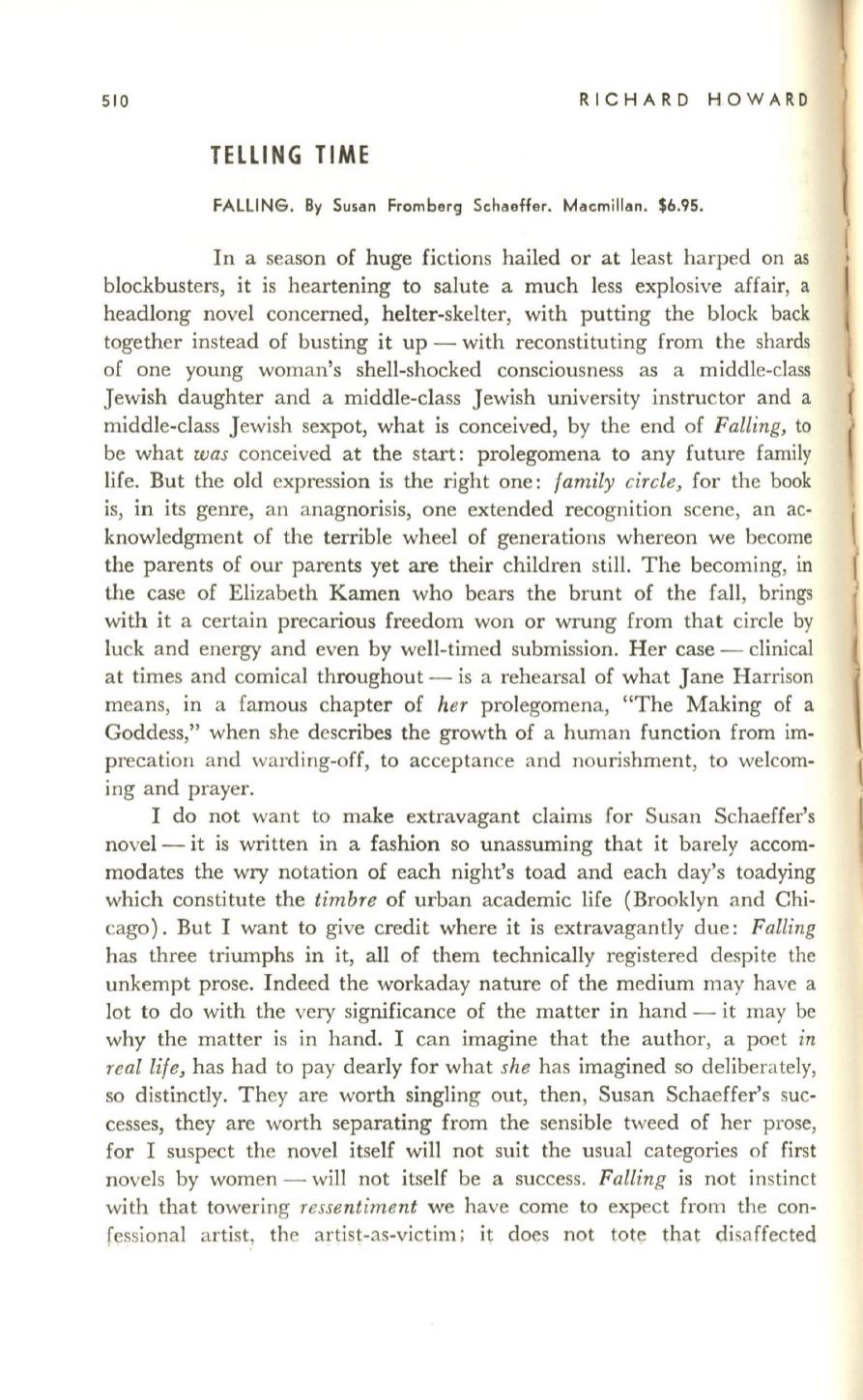
510
RICHARD HOWARD
TELLING TIME
FALLING. By SU5an Fromberg Schaeffer. Macmillan. $6.95.
In a season of huge fictions hailed or at least harped on
as
blockbusters, it is heartening to salute a much less explosive affair, a
headlong novel concerned, helter-skelter, with putting the block back
together instead of busting it up - with reconstituting from the shards
of one young woman's shell-shocked consciousness as a middle-class
Jewish daughter and a middle-class Jewish university instructor and a
middle-class Jewish sexpot, what is conceived, by the end of
Falling,
to
be what
was
conceived at the start : prolegomena to any future family
life. But the old expression is the right one:
family circle,
for the book
is, in its genre, an anagnorisis, one extended recognition scene, an ac–
knowledgment of the terrible wheel of generations whereon we become
the parents of our parents yet are their children still. The becoming, in
the case of Elizabeth Kamen who bears the brunt of the fall, brings
with it a certain precarious freedom won or wrung from that circle by
luck and energy and even by well-timed submission. Her case - clinical
at times and comical throughout - is a rehearsal of what Jane Harrison
means, in a famous chapter of
her
prolegomena, "The Making of a
Goddess," when she describes the growth of a human function from im–
precation and warding-off, to acceptance and nourishment, to welcom–
ing and prayer.
I do not want to make extravagant claims for Susan Schaeffer's
novel- it is written in a fashion so unassuming that it barely accom–
modates the wry notation of each night's toad and each day's toadying
which constitute the
timbre
of urban academic life (Brooklyn and Chi–
cago) . But I want to give credit where it is extravagantly due:
Falling
has three triumphs in it, all of them technically registered despite the
unkempt prose. Indeed the workaday nature of the medium may have a
lot to do with the very significance of the matter in hand - it may be
why the matter is in hand. I can imagine that the author, a poet
in
real life,
has had to pay dearly for what
she
has imagined so deliberately,
so distinctly. They are worth singling out, then, Susan Schaeffer's suc–
cesses, they are worth separating from the sensible tweed of her prose,
for I suspect the novel itself will not suit the usual categories of first
novels by women - will not itself be a success.
Falling
is not instinct
with that towering
ressentiment
we have come to expect from the con–
fessional artist, the artist-as-victim
j
it does not tote that disaffected


